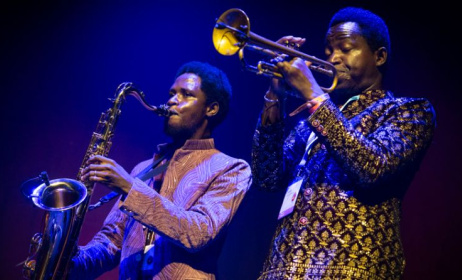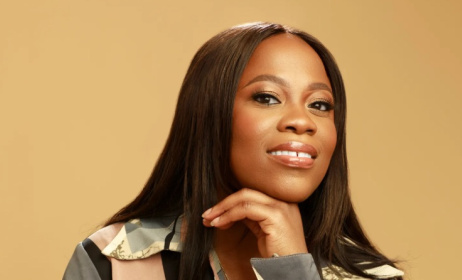Interview: WOMEX’s Gaurav Narula
The Worldwide Music Expo (WOMEX) is among the biggest and most diverse assembly points for the global music industry. Held in a different European city almost every year, the event brings together a comprehensive contingent of professionals across the music business spectrum, facilitating networking and key conversations toward the advancement of the industry.
Last year’s edition – held in Lisbon, Portugal, from 19 to 23 October – welcomed more than 100 speakers from 47 countries, including African industry experts like David Alexander (South Africa), Dudu Sarr (Senegal), Rabby Jones (Ghana) and Melody Zambuko (Zimbabwe). The event also featured 19 conference segments, nine networking and mentoring sessions and three associated presentations. Other activities included a trade fair, film screenings, an awards ceremony and a showcase festival featuring an impressive line-up of artists, including African acts Fra! (Ghana), Etuk Ubong & The Etuk Philosophy (Nigeria), Aunty Rayzor (Nigeria), DJ Diaki (Mali), Al Bilali Soudan (Mali) and Pilani Bubu (South Africa).
Music In Africa spoke with the WOMEX’s head of press and communications, Gaurav Narula, about the specific motives that gave birth to the event, Africa’s footprint at the trade show over the years and its plans moving forward.
MUSIC IN AFRICA: What gave rise to WOMEX?
GAURAV NARULA: Piranha Arts, the producer of WOMEX, is a music and cultural enterprise based in Berlin, Germany, that has worked as a festival production company and a record label since 1987. In the early ’90s, a gathering of music professionals, Berlin Independence Days, took place in Berlin, which included a world music feature called Worldwide Music Days, produced by Piranha. Once that BID conference closed, it created a gap for WOMEX, providing an opportunity to keep alive the network of world music professionals that had developed during the BID years. The first WOMEX took place in 1994 in Berlin.
Could you elaborate on WOMEX’s format and why conferences like this are important for the music industry?
B2B events are often the starting points for new connections and partnerships – in our case between artists, managements, agents, labels, publishers, media, bookers, venues, festivals, artists and every other related professional. Events such as WOMEX are platforms for a direct and focused exchange of music industry knowledge and market-relevant experiences through conferences, discussions, personal networking and, most importantly, to discover new and upcoming artists through the live showcases. The core of WOMEX is a buzzing trade fair, conferences, networking meetings, films, showcase concerts, and our opening concert and closing awards ceremony. And, of course, the community that attends.
Could you speak to WOMEX Films, which has become a highlight of the conference over the years?
The programme allows filmmakers, artists, producers and distributors to reach new markets and explore additional distribution and production channels. The section also creates an immersive experience for bookers, curators, label managers and publishers, among others, to discover new musicians and projects and reflect on alternative programming opportunities. Each year WOMEX facilitates this unique platform strengthening the conversation between the global music and film community.
Another key element of the conference is the WOMEX Awards. What informed this and what goes into the selection of the awardees, who have included everyone from Staff Benda Bilili, Danyel Waro, Hugh Masekela, Cheikh Lô and Oumou Sangaré.
The WOMEX Award was introduced in 1999 to celebrate extraordinary artists and professionals from our global music community who deserve notable recognition. Our two awards honour exceptional achievements in global music on the international level – for musical excellence, social importance, commercial success, political and cultural impact, and lifetime achievement. The list of potential awardees is long, of course.
What specific questions would you say the 2022 edition answered?
The past couple of ‘corona’ years affected our business immensely, and all of us in the music sector had to adapt and improvise quickly. But, of course, the big questions remained: whether the independent and small to mid-sized music operators would survive the hard times, as everyone was affected financially, and whether in-person conferences would still work after so many events and meetings transformed into digital and hybrid formats. So, the answer is ‘yes’ – the in-person events are back and much needed and appreciated. We had more than 3 100 music professionals gathering in Lisbon. And ‘yes’ again, our community is together, stronger than before, alive and kicking, and we hope that everyone will keep operating with renewed confidence, even though we are still in the middle of the aftermath of the pandemic.
Tell us more about the African segments and African footprint in terms of WOMEX speakers and showcasing artists.
Every year, the programme jury at WOMEX works hard to present a diverse and balanced programme across all elements of our event. The geographical factor is one of the important criteria. Therefore, we always try to present and introduce speakers and artists from Africa. They could be based in an African country or living in the diaspora. In 2022, we had 13 bands connected to Africa and its diaspora.
How has the conference evolved over the years and what unique challenges have you faced with each new edition?
WOMEX is a travelling event within Europe that visits a different host city location almost every year, and with each new location come new challenges, in order to deliver an event as known to our delegates. Fortunately, we have event-experienced and great local partners to help us deliver each event successfully. A significant factor in the evolution of WOMEX is the long time that it has been running and developing. WOMEX started as a small gathering of professionals, which has grown organically within the past 28 years to a market of about 3 000 people. Within the global music sector, it is the most international and diverse music meeting, with professionals from more than 100 countries attending, and therefore is continuously evolving and new elements are added or brought in by the community.
What can delegates look forward to at the 2023 edition?
The 29th edition of WOMEX will take place in Galicia, in the coastal city of A Coruña [Spain]. The delegates can look forward to a very cultural, friendly, compact and beautiful city. Our day and night activities all take place in one area around the town’s harbour, and all within a short walking distance. This year, our day and night venues are next to each other. Along the harbour line, there are many restaurants and bars, so people can enjoy the famous Galician cuisine. And for sure, we will have some new Galician talent on our stages to be discovered.
How can interested industry stakeholders attend the conference and what support is there to get them to attend?
Anyone can attend WOMEX as a registered delegate; registrations for 2023 will open at the beginning of April. All are welcome! And you can also participate actively in the programme by proposing a conference session, to present your film, or to perform as a showcasing artist. And if selected for our programme by the jury, this will provide your access to WOMEX. We will open our proposals call for showcase artists and conference sessions for the 2023 programme from the end of January until 17 March 2023.
Funding is a challenge, especially for attendees from outside of Europe. Every country has different funding options; unfortunately, some just don't have much support to offer, so finding funding is always a challenge. It is important to look into available budgets and research the potential local music export offices, participate in governmental tenders, NGO support structures, travel support, exchange programmes, and so on.
In the next five years, what milestones does the forum hope to have achieved for the music industry, especially in Africa?
Our goal is to highlight access, mobility and diversity, and to communicate the value of those essential elements to the wider industry. I think that we have succeeded as an event by little organic steps in the last 29 years, rather than any giant milestones, and we're grateful to an open-minded world music community for enabling our achievements. It’s not always reliable to predict the next five years. However, there is a huge wave of creative talent coming from Africa and the African diaspora, and it is going to be felt globally and on its own terms. We want to see it at WOMEX!




































Comments
Log in or register to post comments